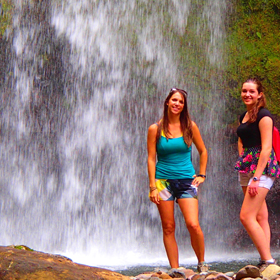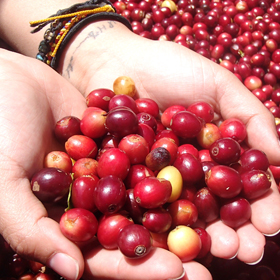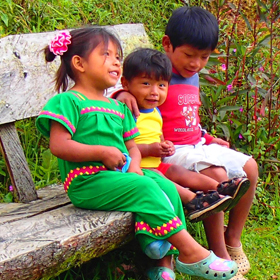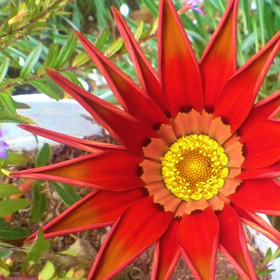People and Culture
The People and Culture of Panama
In 2011, Panama’s population hit 3.5 million. A hundred years earlier, the country’s first census estimated the population to be 337,000. These days, one thing is for certain: Panama is booming, especially within urban areas, where nearly two-thirds of the people live. Many of these urbanites live in Panama City and the surrounding areas, especially within the Canal Zone, which stretches from the capital city to Colón. The other most densely inhabited parts of the country are the central provinces of Herrera, Los Santos, Coclé, and Veraguas. These include the Pacific hills, lowlands, and the Azuero Peninsula, a place considered by many to be the “heart” of Panama.
Panama’s population is relatively young. One-third of the people are under the age of 14, while just six percent are older than 64. It will be interesting to watch this demographic shift as the years press on.
Panama also has a surprisingly diverse population, the result of intact indigenous groups and steady immigration over the last 500 years. Its role as a commercial transit point played a huge part in this. People came (or in many cases, were brought) here to build the canal or railroad, and do business in the capital. The largest number of immigrants came from China and Africa, but there are substantial groups from India, the Middle East, Europe, and North America. It’s tough to get a reliable estimate of the ethnic breakdown in Panama, but most reports put it at somewhere between 65-70 percent mestizo (mixed Amerindian and Caucasian), 8-10 percent Amerindian, and the rest with African or European ancestry.
People with African origins – Afro-Colonials and Afro-Antillanos – have lived in Panama since the 16th century. Afro-Colonials are the descendants of Spanish slaves, while Afro-Antillanos include people from Jamaica and other islands in the West Indies. The Afro-Antillanos were brought to Panama to dig the French Canal (which was later finished by the U.S.), as well as work on banana plantations. Today, the descendants of these people live mainly in Bocas del Toro.
Race relations today are largely based upon socioeconomic class. The country’s most powerful people tend to come from elite families with lighter skin and Spanish ancestry. Known disparagingly as rabiblancos (white tails) by other Panamanians, these people often marry within other elite families and hold powerful positions within the government. The country’s poorest people are the indigenous groups and those of African descent. Afro-Antillanos have had a particularly tough time and have faced widespread discrimination, some of which continues today. The people in Bocas del Toro routinely complain of being forgotten by the government; many of their towns lack clean drinking water and have roads that are pockmarked with potholes.
Customs and Traditions
Panamanians are quick to tell you what they love about their country. Whether it’s the climate, the culture, or the outdoors, national pride runs deep in Panama. Many Panamanians feel strongly that their country is different from others in the region – perhaps because of its intense history or unique geographical location. This feeling is best summed up in the popular Panamanian phrase, puente del mundo, corazón del universo, which means “bridge of the world, heart of the universe.” Whatever the reason, Panamanians’ love of country is infectious; a trip here will tie your heartstrings to the country.
Still, for all its diversity, Panama’s dominant culture has Spanish origins. The family is all-important, Catholicism is prominent, and machismo is a way of life for most men. The U.S. has also had a large influence in Panama, due to its long presence in the country. It’s not uncommon to see people wearing American clothes or listening to music from the U.S., especially within Panama City.
Family and Society
The extended family is the most important social unit in Panama. People work hard to take care of their relatives and are quick to tell you about the achievements of those they are related to.
Children are raised by their extended family and genuinely respect their elders. Often times, multiple generations will live under the same roof, with the younger ones taking care of their grandparents. Because of this, there are very few retirement homes in Panama. Panamanians are often surprised to hear that Americans would rather send an ailing family member to a facility rather than take care of them at home.
Panamanians often live at home well into their twenties and thirties, or at least until they get married. Family-oriented occasions, including birthdays, Mother’s day, and baptisms, are important, and families often travel together – you may come across hotel rooms that are better suited for several people rather than singles or couples.
Bloodlines are also important in Panama; whom one is related to can determine your status within society. Prominent families tend to marry other prominent families, and even within non-elite society, your family’s name can either help or hinder you.
Manners and Social Norms
Panama is a fairly laid back country, both in terms of its manners and lifestyle. Different nationalities, religions, and lifestyles are tolerated, although open homosexuality is still uncommon. Treating others with respect is important, and taking the time to be polite is necessary. Having a basic understanding of the cultural norms will benefit visitors to this country.
Importance is placed on personal appearance and hygiene. Panamanians try to maintain a neat, conservative appearance when in public. Generally, men pair long pants with a collared shirt; shorts and sandals are usually considered too casual. For women, a dress or jeans paired with a nice top is appropriate. It should also be noted that it is illegal for men or women to walk around a city or town without a t-shirt. Being shirtless on a beach is fine, but try to wear something while walking through town, as this law is actually enforced.
Panamanians generally greet each other with a handshake or hug. Men shake hands with one another, unless they are related or close friends, in which case they may hug. Depending on the person they are meeting, women will either shake hands, hug, or kiss each other along the side of the cheek. Panamanians value personal space, and thus touch during a conversation is somewhat unusual. Maintaining eye contact is also important and is seen as a sign of integrity.
Titles are important in Panama. When addressing someone directly, use Don for men and Doña for women, followed by a surname. This practice is similar to saying “Sir,” “Mister,” or “Mrs.” This is especially important if the person you are greeting is a professional – a doctor, lawyer, or professor, for example. This practice may seem formal, but it is a sign of utmost respect for Panamanians.
When dining out, a 10-15% tip is customarily given to the server. Taxis add a tip into the price, as do hotels, which are required by law to include a 10% tourism tax. Bargaining is not widely practiced in Panama, although you may be able to get a discount when buying handicrafts at local markets.
Perception of Time
Tranquilo is a word that you may come across while traveling in Panama. It means calm or peaceful and can be applied to a person, place or a situation. It’s also a good example of the Panamanian perception of time.
Similar to the practices of people in other Latin American countries, Panamanians do not place a high importance on promptness. Showing up late is normal and in many cases expected – it’s not uncommon for guests to show up an hour or two late to a dinner party. Time is perceived with fluidity, and lunches and dinners can extend for several hours. The emphasis is placed on the people and relationships rather than on a strict adherence to the schedule.
This being the case, the mañana (tomorrow) mentality is prevalent, except when doing formal business. This can be problematic for North Americans who want to get things done immediately or maintain a tight timeline.
Reference: Useful information provided by our partner Anywhere Panama.





